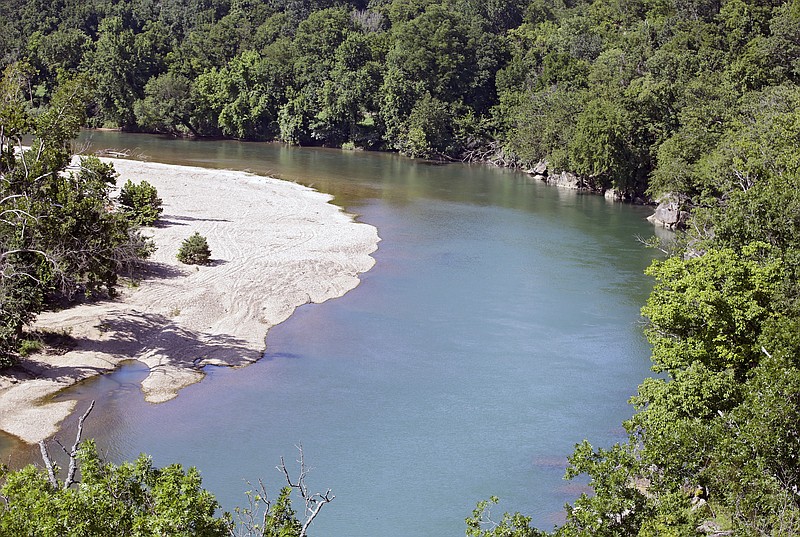Mediation efforts to end the dispute over pollution of the Illinois River by Arkansas poultry companies have failed, according to a document filed in Oklahoma’s federal lawsuit in Tulsa, Okla.
The 11 poultry company defendants in the case also filed a motion to dismiss the 18-year-old lawsuit that led to the mediation attempt, citing the time passed and how conditions in the river’s watershed have changed.
The Oklahoma attorney general filed the lawsuit against poultry producers in 2005. The trial ended in Sept. 24, 2009. Thirteen years passed before U.S. District Judge Gregory K. Frizzell in Tulsa issued his ruling Jan. 18 of this year.
“Such a ruling is unprecedented. Defendants are unaware of any court, in any jurisdiction, federal or state, ever awarding injunctive relief on a record so stale,” the motion for dismissal says. Both the defendant’s motion to dismiss the case and the notice mediation had failed were filed Thursday in Frizzell’s court.
Frizzell ordered the Oklahoma attorney general to respond to the motion to dismiss by Nov. 10. The defendants have until Nov. 17 to file a reply in turn to the attorney general’s response, according to the judge’s order issued Friday.
“The attorney general will continue seeking a resolution of this matter that is in the best interests of Oklahoma,” Gentner Drummond, attorney general for Oklahoma, said in a statement Monday.
Oklahoma cannot credibly claim current, serious and ongoing damage in a 2009 trial and then do nothing while waiting 13 years for a ruling, the motion to dismiss argues.
“Yet for all that time, despite claims of exigent environmental harm, the plaintiff, the State of Oklahoma, has sat idly by,” the motion to dismiss states. “Six Oklahoma Attorneys General have held that office, but despite bearing the burden of proof, not one of them asked this court to rule or sought relief from the Tenth Circuit” U.S. Court of Appeals in Denver.
Frizzell’s ruling found poultry litter from the farms supplying birds to those companies pollutes the Illinois River. Then on June 12, Frizzell ordered the parties to negotiate a settlement on damages rather than pronounce sentence, saying he would wait to see if the mediation effort succeeded before imposing a sentence of his own. The parties agreed to mediation efforts overseen by retired 10th U.S. Circuit Court of Appeals Judge Deanell Reece Tacha of Lawrence, Kan.
The Illinois River’s headwaters lie in Northwest Arkansas. Phosphorus pollution from chicken litter used as fertilizer on poultry farms severely affected water quality in the river, Frizzell ruled. The judge’s ruling found the poultry industry had taken major steps over the years to reduce pollution but added more steps were needed.
Neither conditions in the Illinois River watershed nor federal law relevant to this case remained static for 13 years, the motion to dismiss argues.
“The human population in the Illinois River Watershed (IRW) more than doubled, farming and land-management practices evolved, communities on both sides of the border poured hundreds of millions of dollars into improving wastewater treatment, and water quality demonstrably improved,” the dismissal motion argues. “The IRW of today is not the IRW of 2010. Nor was the law static. Since 2010, federal and state courts have issued path-marking decisions addressing nuisance, trespass, causation, and federal common law.”
Neither the ruling itself, any other documents released in the court file nor any statements made by Frizzell in hearings on this case gives a reason for the 13-year delay between the end of the trial and the judge’s ruling. A request to the judge by the Northwest Arkansas Democrat-Gazette for comment on the delay after he made his ruling received no response.
The most conservative estimate given in the trial of the amount of chicken litter produced by the defendants’ operations was 354,000 tons in 2009. Litter consists of waste and the wood shavings or rice hulls spread on the floors of chicken houses to absorb that waste.
Relief sought in the lawsuit includes curtailing runoff from litter. The relief could include restrictions on how much litter is used and how it can be applied in the watershed. Frizzell ruled out monetary damages in a hearing before the case went to trial.
Recommendations made by expert witnesses in the trial include removing all poultry litter outside the watershed, buffer strips to control runoff, excavation of phosphorus-laden soil, applying alum to fields to bind phosphorus there, stream bank stabilization and constructing wetlands.

